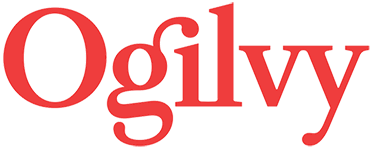PHILIP ELLIS on 29 November, 2017 at 11:11
At The Drum’s Media Slap event at Google UK, speakers from the world of media and publishing delivered a shared state of the union address on their industry, outlining a series of challenges and opportunities to consider as we come to the end of 2017.
The most significant concern on the agenda was that of trust and credibility. Collins Dictionary has made “fake news” its term of the year, and according to the Economic Trust Barometer, trust in the media in the last 12 months has plummeted to an all-time low. This is unsurprising, in the aftermath of the misinformation-fueled campaigns for both the EU referendum and the US election. 64 per cent of US adults say that fake news has caused a “great deal of confusion” around the basic facts of current events, and only 38 per cent believe that news outlets aren’t making up stories.
This is worrying for news organizations, but it becomes worrying across industries when you consider that trust is expected to become the single most important currency of the digital world. Trust in institutions is in flux in the digital age, and we are beginning to see a shift towards a more distributed form of trust among individuals. So where do content publishers and media companies stand in all this?
“The only chance media brands have today is to build up trust again, and that can only happen through quality content,” says Schantin. That means potentially ditching the aggregated news story model, where reporters are so pushed for time that they recirculate stories which appeared elsewhere, some of which have highly spurious origins, as well as creating branded content that is authentic and clearly defined as separate from straight news content.
Orit Kopel, co-founder of WikiTribune, a new journalism platform which deploys a community of volunteers to verify all of its reporting noted, “Redditors have been debunking stories themselves for years, you don’t have to be a journalist.” Adopting a similar crowd-based method to Wikipedia will, in theory, make WikiTribune hoax-proof.
Additionally, tech giants Google and Facebook are both working on “trust indicators” which will help consumers more easily identify credible sources of news — a more favorable alternative than simply removing publishers from news feeds, which Facebook experimented with earlier this year. “Platforms are the kingmakers,” says Christian Broughton, Editor of The Independent. “Removing publishers from the News Feed would cripple them.”
“The simple fact is, they’re here, let’s make them work,” says Piers North, Group Digital Director of Trinity Mirror, speaking about the duopoly of Google and Facebook. “You have to use them, stay close to them, and make them work for your business.”
During another panel on revenue and diversification, the question of whether or not print is dead was broached once again, in the wake of 2017’s mass pivot to video. “I think we’re going to see a lot of brands close down their print titles and go digital-only in the next year,” says Mick Greenwood, Head of Video at Time Inc. “But we have to be nuanced about what business model suits what content.”
While print is derided by some as yesterday’s medium, digital-first darlings like BuzzFeed and Mashable are struggling to turn a profit, says North, who believes “they are struggling, in part, due to overenthusiastic valuation.”
Elsewhere, print is very much still seen as a necessity, not just a nice-to-have. Duncan Chater, Chief Brand Officer at Hearst UK, describes how a massive revamp on the Cosmopolitan print brand actually propelled the brand’s online traffic, making Cosmopolitan the first Hearst title where digital ad revenues surpassed print revenue.
“Print is fundamental in the brand ecosystem, and helps drive growth,” he says. “The organizations who will be successful are the ones who recognize all of these points, and join them together.”
BOILED DOWN
- A large number of consumers don’t trust the media, and some struggle to tell the difference between reporting and native advertising
- Platforms like Facebook and Google will be required to help re-establish the relationship between publisher and consumer through trust indicators
- While many publishers are pivoting to video and digital-only, print media remains a viable and necessary revenue stream for a number of organisations.



